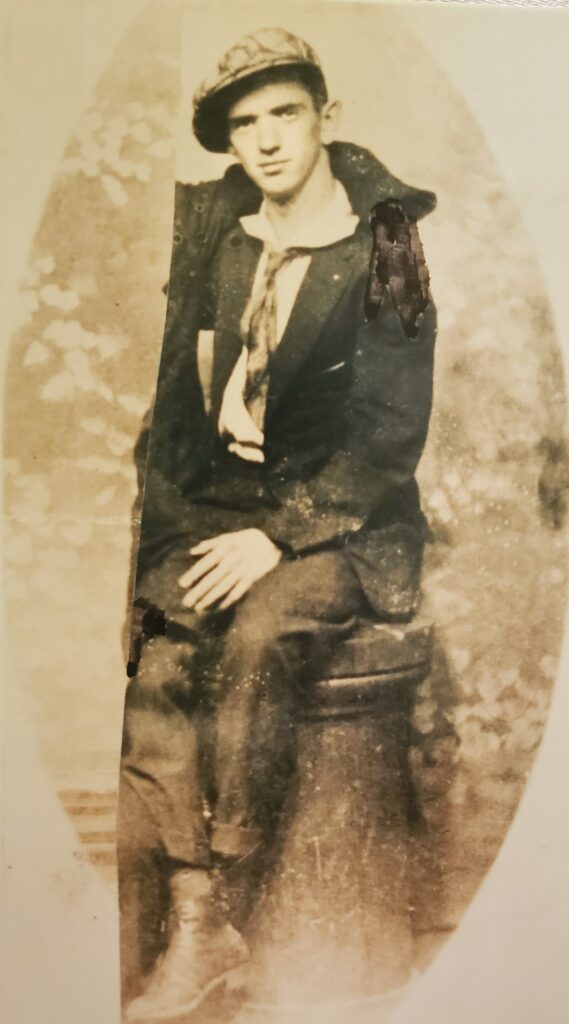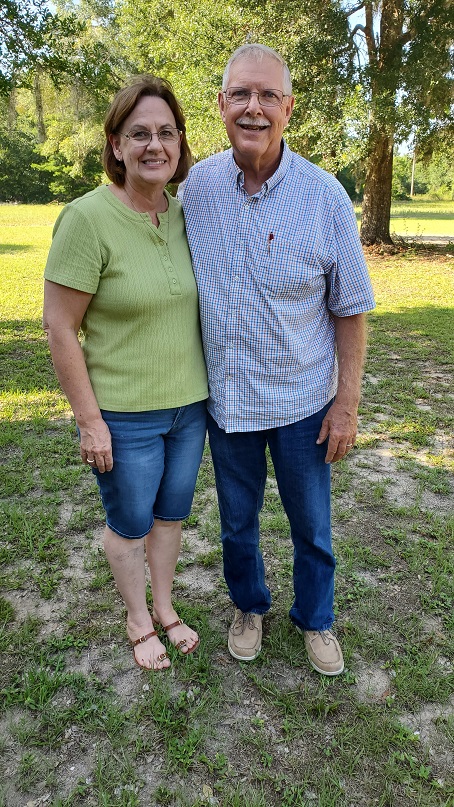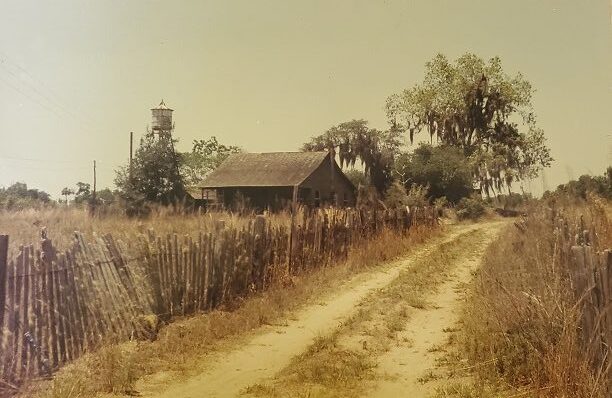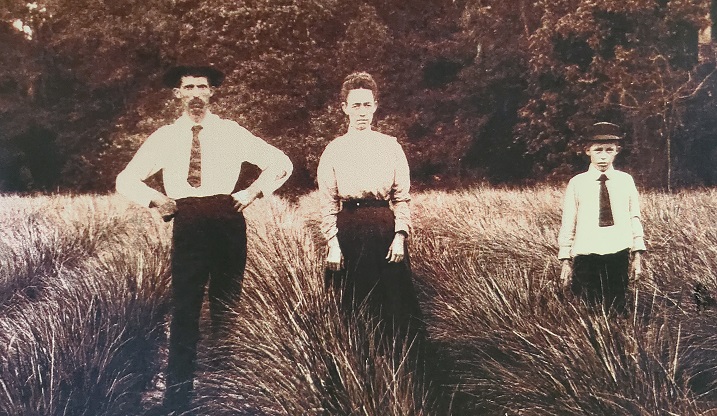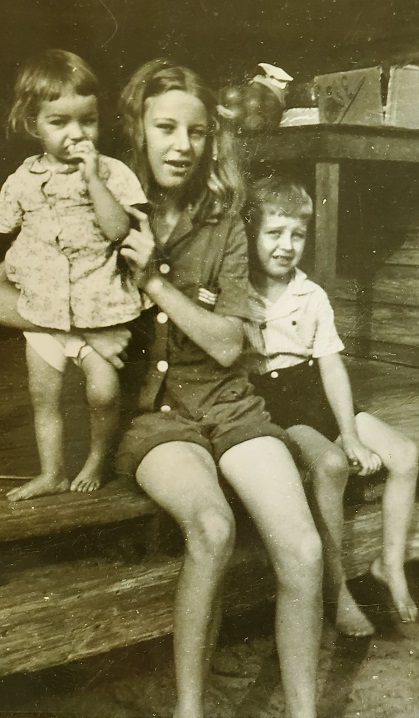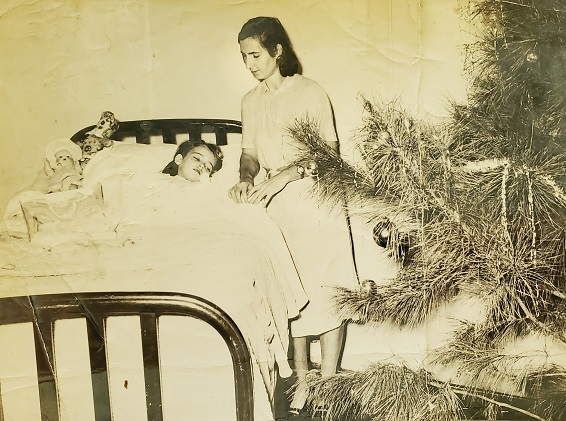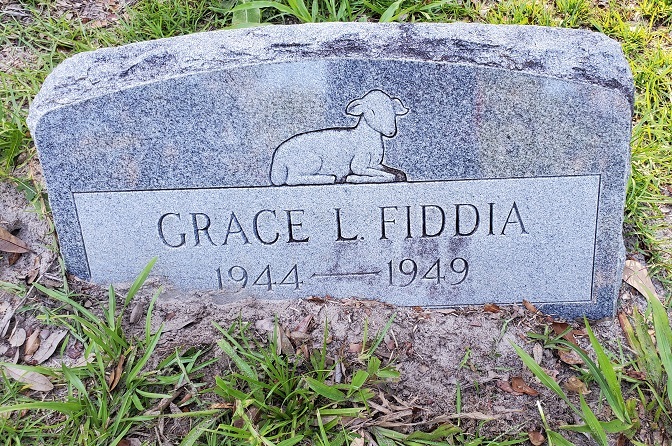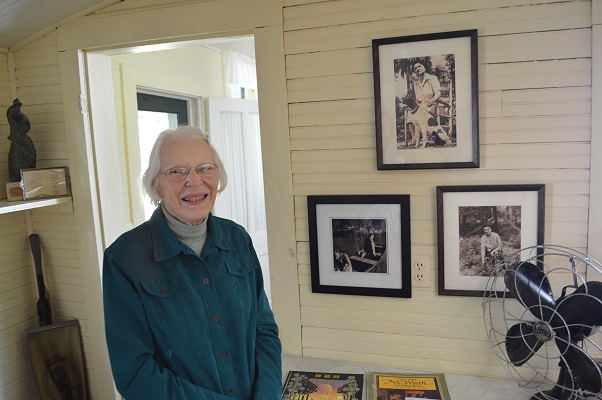The Yearling movie, and more importantly, the novel, may never have happened if it hadn’t been for Leonard Fiddia. Marjorie Rawlings met Leonard Fiddia in either 1929 or 1930 while on a hunting trip with a mutual friend. It was Leonard Fiddia who introduced her to Calvin Long in the “Big Scrub.” Calvin Long shared with Marjorie the story about his brother Melvin, who had a pet deer. From there the classic story was born.
Leonard Fiddia lived off of Hog Valley Road by the Ocklawaha River. I recently had the chance to sit down with Leonard Fiddia’s grandson Paul Laxton and his wife Sydney who live on the same property that Piety and Leonard lived on when Marjorie visited back in the 1930s to gather material for her books.
“It’s a property that’s been in our family since about 1890,” said Paul. “The actual house that they lived in is right here where this house is. It’s kind of like right here in front of our house.”
Like many folks in the 1930s, Paul says his grandfather, Leonard Fiddia, did whatever he could to support and feed his family.
“He would night hunt. It was stuff that was illegal, but they were just trying to survive, you know,” said Paul, who is a retired Marion County Sheriff’s deputy. “So he had fish traps, he kept fish traps out there in the river where he would go and collect fish and eat fish. They had venison. They raised hogs and then there was the garden….They lived pretty much off the land. My mom talks about how some of it was illegal, but they were just trying to survive. It may have been somewhat of a simple life, but I think it was a good life for them.”
Paul says Leonard was also a skilled carpenter and electrician. Like many other folks in the “Big Scrub,” he made moonshine. Marjorie not only bought moonshine from Leonard, but helped him make it, spending several weeks with him and his mother Piety Fiddia to gather material for her first major novel, South Moon Under.
Sydney Laxton says she loves Marjorie’s novel, South Moon Under. “Once I got into it I could not put it down, especially because it was where we live. Our home that we built in 1992, this is where it happened, the South Moon Under story took place.”
Leonard, Piety and Marjorie became good friends to the point that when Leonard and his wife Margaret faced a family tragedy, Marjorie or “Marge” as Leonard called her, was even willing to donate her blood to try and save their youngest daughter.
The year was 1949. Leonard and Margaret had three living children. An infant had died shortly after birth. There was Carol, who was 15, seven year old Elmer, and a five year old daughter Grace. In the fall of 1949, Grace became seriously ill and was taken to Dr. J. L. Strange’s medical clinic in McIntosh. She talked about visiting with little Grace in a letter she wrote to her husband Norton Baskin dated December 12th, 1949:
“I went to Dr. Strange’s hospital Monday afternoon, and Leonard and Margaret and Jean were all there, Margaret worn to the bone, Leonard in tears. St. Vincent’s had confirmed the leukemia, and sent the child back where her family could be with her all the time. The great horror of it is her suffering. Aside from an almost constant fever of 105, she has begun to swell, and since the bone-marrow is affected, she is in utter agony…..She has to have a blood transfusion almost every day, to keep her alive, and Leonard said he had almost given out of donors.” (Rodger L. Tarr, ed. The Private Marjorie : the Love Letters of Marjorie Kinnan Rawlings to Norton S. Baskin. Gainesville: University Press of Florida, 2004)
Though she was willing to donate, Marjorie’s blood type wasn’t suitable for little Grace. A local hardware store donated a new red wagon for the little girl, something Grace had wanted, but sadly she died one week before Christmas.
Paul and Sydney shared family photos and mementos with me, including a video recorded of Paul’s mother Carol (Leonard’s oldest daughter) talking about Marjorie at a talk in Fort McCoy a few years before Carol passed away. Little Grace’s death remained a difficult subject even decades later.
“She died exactly a week before Christmas,” said Carol Fiddia. “That was a sad Christmas.”
Marjorie attended the funeral service at the Fort McCoy Cemetery on December 21, 1949. The memorial book shows that she contributed a vase with white flowers for the service. In a letter to her friend and publisher representative, Norman Berg dated December 29th, 1949, she described sitting at the gravesite in the Fort McCoy Cemetery:
“Leonard’s little girl died a week before Christmas. The funeral services were in the little Fort McCoy cemetery where Leonard’s people back to his great-grandfather are buried, and were simple and sweet, if such a thing is possible, with the wind in the pines, and a nearby saw-mill chug-chugging away. Leonard’s little boy, aged seven, the dreadful Elmer, wrestled with another little boy at the very edge of the grave–. Leonard insisted that I sit in the front row with the family, and Elmer sat next to me, chewing gum, and fascinated by his new shoes, which he kept rubbing together with a great squeaking, most satisfactory to Elmer.” (Laura Virginia Monti and Gordon E. Bigelow, eds. Selected Letters of Marjorie Kinnan Rawlings. Gainesville: University Presses of Florida, 1983)
Marjorie went on in that letter to Norman Berg to describe travelling to the Fiddia homestead to bring Christmas dinner.
“I promised Leonard and Miss Piety that I’d come to the Scrub this week, and I was sure they would have had some of the east coast rain on their deep sand road, so yesterday afternoon I set out with a turkey and all the fixings in time to cook dinner there. They had not a drop of rain, the place is 8 miles from anywhere, and I had to dig out twice. But we had as fine an afternoon and evening as possible under the circumstances of their sadness, and the turkey dinner cooked in the old wood-range was delicious, and Mis’ Piety put her thin old arms around me and said, ‘This is like old times,’” wrote Marjorie.
Leonard Fiddia’s daughter Carol remembers that Christmas dinner well. “All I remember about that meal is the turkey. Now we had eaten turkey because my dad killed wild turkeys occasionally. But they were always cut up before they were cooked. But she had this great big bought roasted turkey there on the table. Now that was impressive,” said Carol.
“My mom talked about it being a rough Christmas ‘cuz Grace had passed away just prior to Christmas and one thing she talked about was how Marjorie showed up at the house Christmas morning with all the fixings to make ‘em a Christmas dinner meal for them,” said Paul.
“It really touched Carol because she would still choke up you know, telling the story,” said Sydney.
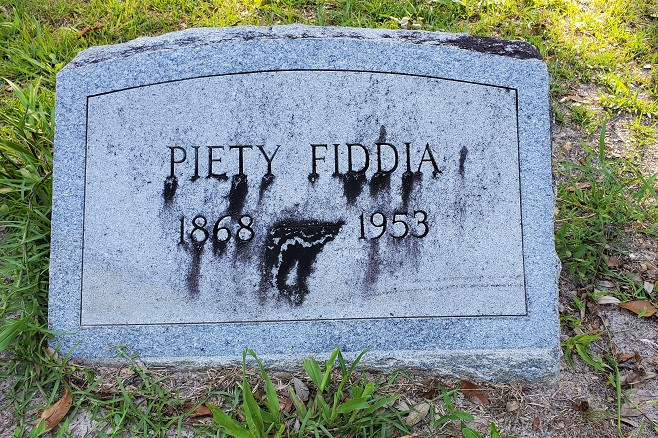
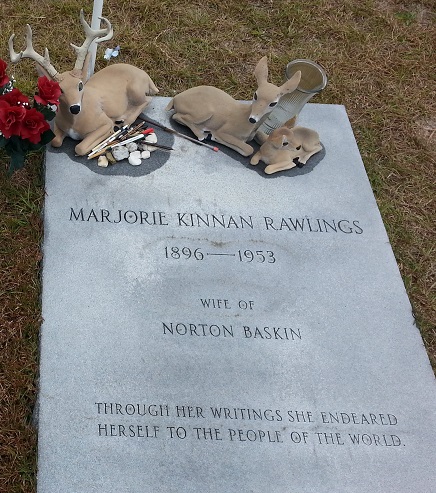
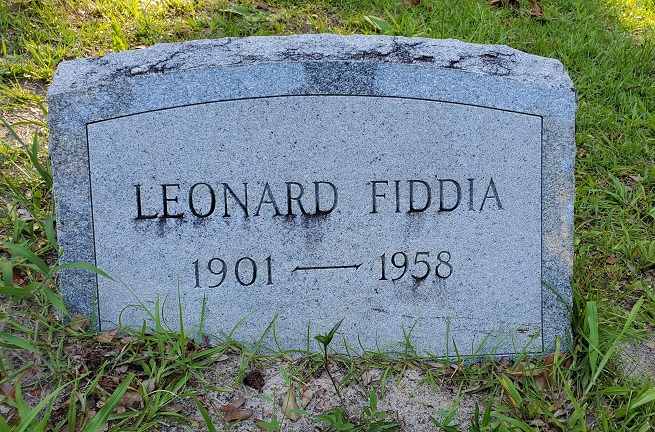
The Fiddias remained close friends throughout Marjorie’s life. Leonard continued to do work to help maintain Marjorie’s home and serviced Marjorie’s Kohler plant which provided her electricity. The family says he even helped with carpentry work on the set of The Yearling movie in the mid-1940s. Both Piety Fiddia and Marjorie died in the same year…Piety in April of 1953 and Marjorie in December of 1953. Leonard Fiddia died in 1958.
